Facing a speeding ticket in California? You might wonder, can you fight a speeding ticket? Yes, you can. This article offers straightforward advice on contesting your ticket, inspecting the evidence, and taking the right steps towards a potentially cleaner driving record.
Key Takeaways
- A speeding ticket in California is a serious legal document that impacts your driving record and finances, and understanding its details and potential consequences is essential for crafting a defense.
- You can challenge the evidence against you in traffic court by questioning the method of speed measurement and presenting your own evidence, which may include inaccuracies in officer observations or technological shortcomings of speed detection devices.
- Hiring a traffic ticket attorney with a successful track record can greatly improve your chances of having the ticket dismissed or lessened, and they can navigate the complexities of traffic law and courtroom procedures on your behalf.
Understanding Your Speeding Ticket in California
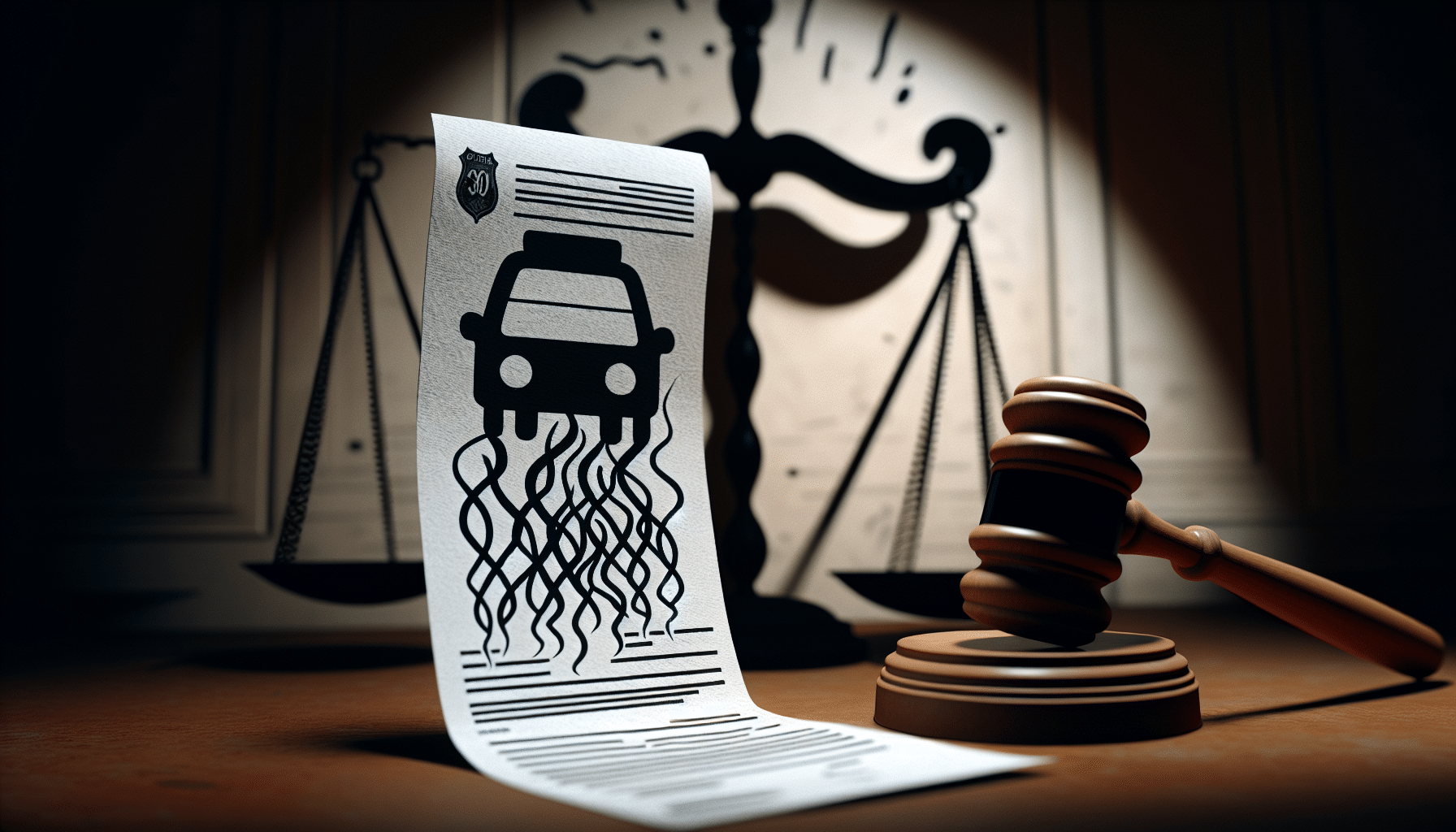
Receiving a speeding ticket can be more than just a nuisance; it can have long-lasting effects on your driving record and wallet. In California, a speeding ticket is not just a mere slip of paper—it’s a legal document that alleges a violation of traffic laws. The details inscribed on it carry significant weight, as they outline the supposed infraction and set the stage for any potential consequences. Understanding your ticket is the first step in deciding whether to pay the fine or put up a fight in traffic court.
Examining your speeding ticket closely resembles the work of a detective investigating a case file. Every element, from the recorded speed to the location of the alleged violation, can influence the outcome of your case. You need to confirm the particulars: Was the speed limit clearly posted? Were there extenuating circumstances that could explain your speed? These details form the bedrock of your defense strategy and could mean the difference between a blemish on your driving record and a speeding ticket dismissed. It is essential to review specific or multiple records related to the incident to strengthen your case.
Alleged Violation Details
In the case of the assumed violation, details truly matter. The officer’s observations, the exact location of the alleged infringement, and the recorded speed are critical components that the prosecution must prove beyond a reasonable doubt. The location of the infraction could be your ticket to freedom, especially in areas where the speed limits are ambiguous or not visibly posted. It’s these nuances that may provide you with the leverage you need to question the validity of the traffic offense and, potentially, have additional penalties nullified.
For those who find themselves as the alleged offender, a thorough examination of the ticket can uncover inaccuracies or inconsistencies. Was the speed limit appropriate for the assumed location? Were there any additional penalties noted that seem excessive? Examining the supposed violation in depth enables you to construct a case that questions the officer’s viewpoint and, consequently, the traffic infringements leveled against you.
Traffic Law and Potential Consequences
Appreciating the seriousness of a speeding ticket demands knowledge of traffic law and the possible repercussions of a speeding offence. In the eyes of the law, paying the fine is an admission of guilt, which then imprints the offense onto your driving record, often lingering for about three years. This can mean accruing points that inch you closer to license suspension and increased insurance premiums, especially if you’re a repeat offender or involved in a fault-related accident.
The impact of a speeding ticket extends beyond points on your record; it can significantly affect your finances as well. Fines can range from a few hundred dollars to over a thousand, depending on how far over the speed limit you were driving. California’s legal system further compounds the financial pain with a 20 percent surcharge and additional fees that raise the stakes even higher. For the more egregious traffic offenses, such as reckless driving, the consequences can escalate to license revocation or even jail time, making the prospect of a speeding ticket reduced or dismissed all the more appealing.
Challenging the Evidence
Faced with the intimidating prospect of traffic court, you might question the feasibility of challenging the officer who issued the ticket. Challenging the evidence is not only feasible but can be a pivotal move in your court battle. Mastery of courtroom evidence rules and a strategic approach to argumentation can put you in a favorable position. It all starts with gathering supporting information, which could include obtaining case-related notes and documents from the arraignment or through a discovery request. Persistence in this endeavor can sometimes lead to a court-ordering evidence release, and any non-compliance on the part of law enforcement may even result in the ticket being dismissed.
The foundation of your defense could rest on questioning the officer’s testimony or the evidence introduced against you. Whether it’s highlighting mistakes in the officer’s observations or presenting your own evidence that contradicts the prosecution’s claims, your goal is to create reasonable doubt. This might involve questioning the precise method of speed measurement or providing a justifiable reason for your actions, like an emergency situation.
In the end, challenging the evidence revolves around identifying weaknesses in the prosecutor’s case and shielding your driving record from an unjust traffic violation.
Questioning the Method of Speed Measurement
Contesting the speed measurement method employed for your speeding ticket demands a mix of technical understanding and critical questioning. Radar guns, while commonly trusted, are not infallible and may suffer from calibration errors or interference from external factors such as weather conditions. Similarly, LIDAR devices, despite their precision, are not immune to questions regarding the stability of their laser beams or the integrity of the speed reading. Your challenge here is to dissect the calibration certificates and scrutinize the conditions at the time of the incident, seeking any hint of user error or technological shortcomings.
The accuracy of other speed measurement techniques, like pacing or VASCAR, also presents potential areas for dispute. Here are some reasons why:
- Pacing relies on maintaining a specific distance behind a vehicle, which can be difficult to do accurately, especially in heavy traffic or on winding roads.
- VASCAR (Visual Average Speed Computer and Recorder) relies heavily on the input and reaction time of the officer, which can introduce human error.
- Both techniques can be affected by less-than-ideal driving conditions, such as bad weather or poor visibility.
These factors can introduce significant margins of error and lead to disputes over the accuracy of speed measurements.
Aircraft speed detection, too, can be called into question, focusing on the challenge of maintaining consistent visual contact and the possibility of stopwatch errors. By critically examining these methods, you can argue that the alleged traffic violation may not be as clear-cut as it appears.
Presenting Your Own Evidence
Defending yourself in traffic court involves presenting a robust collection of your own evidence. Photographs of the alleged violation area can provide context, perhaps showing that the officer’s view was obstructed or that the road conditions didn’t allow for clear speed limit signage. Witness statements can corroborate your version of events, and if you had a passenger at the time of the ticket, their testimony could prove invaluable. It’s this tangible proof that can bolster your claim and support the narrative that you were not in violation of traffic laws as accused.
The evidence you present can also target the speed measurement directly. Perhaps the pacing was done over a distance that compromised its accuracy or the radar gun’s calibration certificate shows a history of inaccuracies. Remember, it’s not just about disputing the ticket; it’s about painting a picture of doubt and presenting a compelling alternative story to the one told by the officer who pulled you over. Keeping a detailed memory of the interaction with the officer and any other relevant information from the traffic stop is crucial for consistency in your defense.
Hiring a Traffic Ticket Expert
At times, the intricacies of traffic laws and the intimidating ambiance of the courtroom can seem overpowering. It’s in scenarios like these that a traffic ticket attorney becomes an invaluable ally. These legal experts specialize in navigating the murky waters of traffic violations and can often provide representation in court, sparing you the need to appear personally. With their in-depth knowledge of traffic law and familiarity with judicial tendencies, they can offer informed legal advice and implement the most effective defense strategies.
But perhaps the most compelling reason to hire an attorney is their track record. Experienced lawyers have a history of securing favorable outcomes, whether that means getting a speeding ticket dismissed or significantly reducing the associated points and fines. For commercial drivers or those with numerous tickets, the consequences of a traffic violation can be particularly severe, further underscoring the value of professional legal assistance. With the right traffic lawyer, you could see your ticket transformed from a surefire penalty to a dismissed case or a significantly mitigated offense.
Finding the Right Solution
Initiating an online search for the perfect traffic attorney can seem challenging, yet it is vital to locate a professional with the appropriate experience and knowledge for your particular situation. Referrals from friends or colleagues can be a goldmine for trustworthy recommendations, as they can share their firsthand experiences with particular attorneys. However, it’s important to do your due diligence, comparing multiple lawyers based on their track record, fees, and overall approach to cases like yours using such a search engine. Be wary of fees that seem too good to be true—they often are.
Before committing to an attorney, make sure you understand their fee structure completely. Hidden costs can add up, and you want to ensure that the services provided are within your financial means. An effective traffic lawyer should also be an excellent communicator, keeping you informed every step of the way and demonstrating a genuine commitment to your case.
When you’re facing the possibility of a speeding ticket impacting your life, finding the right legal expert is not just about reducing fines—it’s about preserving your freedom on the road.
What to Expect from Legal Experts
Establishing practical expectations is crucial when collaborating with a traffic ticket lawyer. You should anticipate:
- Having an ally who will represent you in court trials, potentially sparing you from the stress of a court appearance.
- An attorney’s primary goal is to leverage the most effective legal defenses, tailoring their strategy to the specifics of your case and the peculiarities of traffic court.
- This specialization in traffic cases means they can navigate the legal system with ease, often securing outcomes that are more favorable than what you might achieve on your own.
Clear communication is a hallmark of a good attorney-client relationship. From the initial consultation to the resolution of your case, your lawyer should be available to answer your questions and provide updates. They should explain legal terms and court procedures in a way that demystifies the process, ensuring you’re never in the dark about your case.
With a knowledgeable traffic ticket attorney by your side, the journey from a speeding ticket to a clear driving record can be smoother and more successful than going it alone.
Navigating the Traffic Court Process
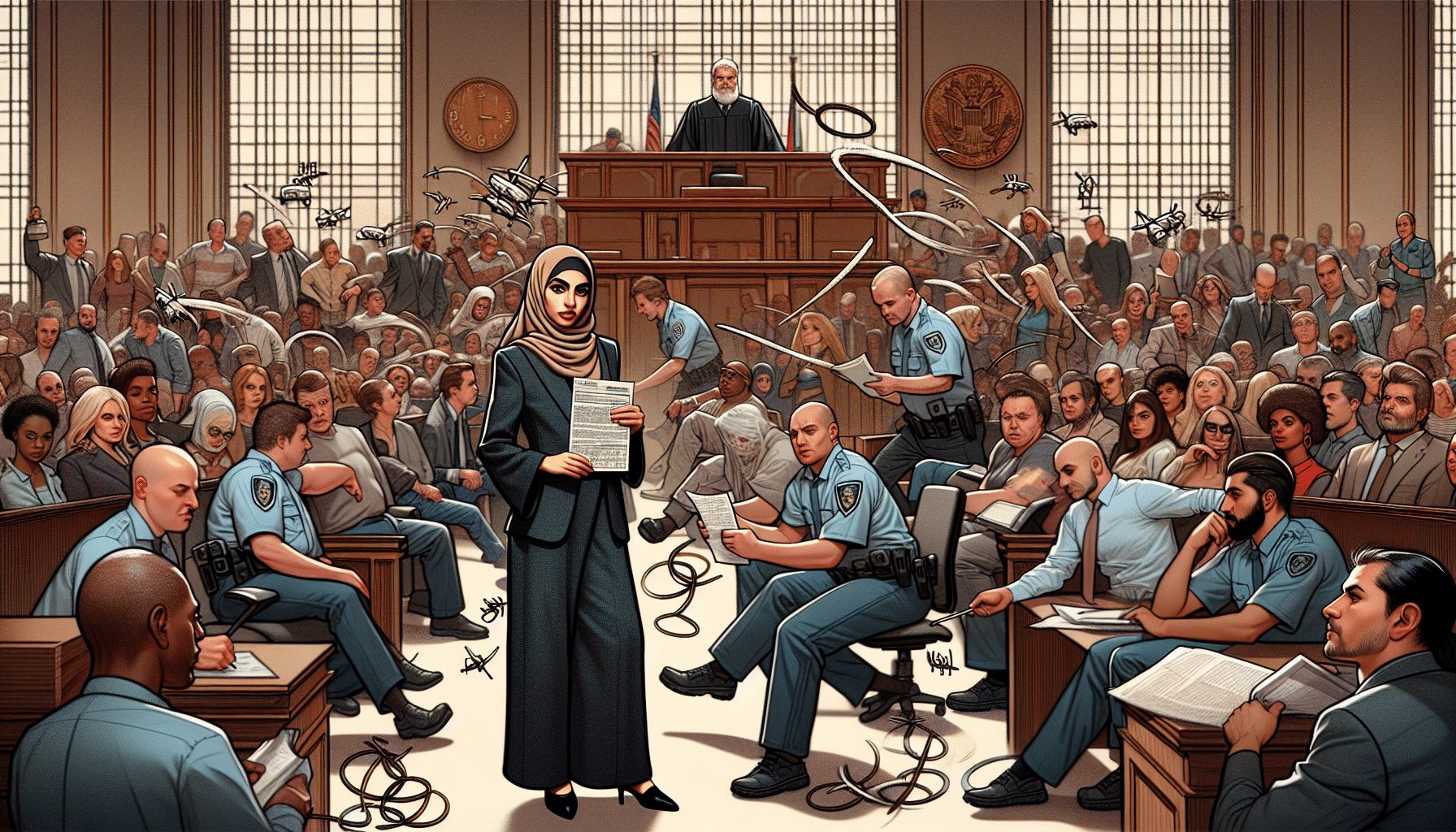
Entering a traffic court can seem like navigating a maze, but equipped with guidance, you can find your path. Preparation is your best ally: gather all relevant documents, understand your rights, and develop a clear and concise argument for your defense. Remember, the courtroom’s formality is often used as an intimidation tactic, designed to pressure you into pleading guilty or accepting a lesser outcome, like traffic school. However, with the right preparation, you can stand your ground and effectively navigate these tactics.
The countdown to your court date begins the instant you receive your speeding ticket. It’s crucial to handle the logistics, such as confirming the court date, researching the traffic violation, and deciding whether to hire an attorney. As your trial date approaches, revisit your defense strategy, ensuring it’s solid and ready to withstand the scrutiny of the court.
Pleading Not Guilty
Entering a not guilty plea for a speeding ticket signifies your determination to challenge the allegation. This plea can be made by mailing the appropriate section of the ticket or in person during a court hearing, setting the stage for a trial date. Once this plea is entered, you have the right to request disclosure of any notes or documents related to the case, which can be crucial for building a strong defense. For those who prefer to keep their dispute out of the courtroom, a trial by written declaration offers a way to contest the ticket by mail. While this method statistically improves the chances of winning your case, you still have the option to request a new trial within 20 days if the outcome is not in your favor.
The plea of not guilty is more than a mere statement—it’s an assertion of your rights and a challenge to the prosecution’s case. It signals to the court that you require the prosecution to prove the alleged violation beyond a reasonable doubt, potentially through a jury trial. In doing so, you may reveal weaknesses in the evidence against you, which could lead to a ticket dismissed or reduced.
Preparing for Your Court Hearing
Your court appearance is a pivotal event in your journey to contest your speeding ticket. Approach it with the same meticulous preparation as a lawyer preparing for a high-stakes case. A structured argument, with each point logically flowing into the next, is essential for presenting a persuasive defense. Dress professionally, as your appearance can impact the court’s perception of you, and maintain a polite and respectful demeanor throughout the hearing to demonstrate your seriousness and commitment to the case.
Deciding whether to testify in your own defense is a personal choice. Consider your comfort level with public speaking, the strength of your evidence, and whether your testimony is the sole evidence you have. In some cases, your own words can be the most compelling evidence, but in others, it may be better to let other evidence speak for you.
Alternative Options for Resolving Speeding Tickets in California
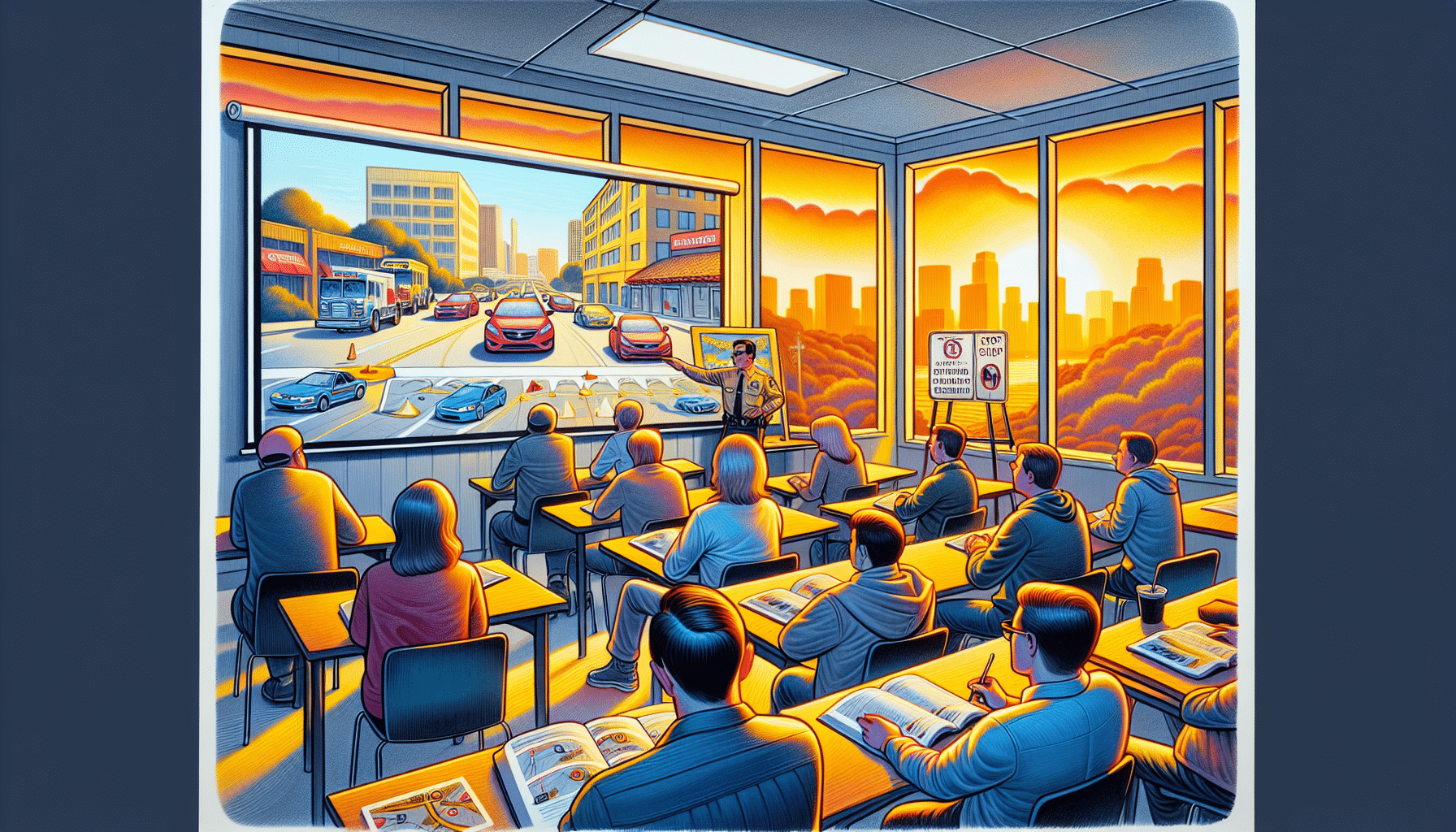
Occasionally, an effective defense involves a tactical withdrawal or diversion, particularly in the intricate realm of traffic offenses. California offers alternative routes for those wishing to avoid the harsh repercussions of a speeding ticket. These avenues, such as attending traffic school or engaging in plea bargaining, can lead to a resolution that minimizes the impact on your driving record and your wallet. The eligibility for these options often hinges on your previous violation history and the specifics of your current offense, making it a viable path for first-time offenders or those with minor infractions.
Plea bargaining, in particular, is a negotiation process that can sometimes feel like a delicate dance with the prosecuting attorney. It involves discussing a deal to reduce the charges or penalties of your speeding ticket. While the idea of negotiating might seem daunting, it can lead to a reduced fine or fewer points on your record, which can have a significant effect on your driving future. Whether you opt for traffic school, plead guilty to a lesser charge, or hammer out a plea deal, these alternatives to a court trial provide a way to potentially lessen the sting of a speeding ticket.
Traffic School
Although traffic school might conjure up thoughts of cramped classrooms and boring lectures, it presents an opportunity to escape the repercussions of a traffic ticket. By completing a traffic school program, you can often have a moving violation erased from your record, which can be crucial for keeping insurance rates from skyrocketing. This path not only helps with fines but also protects your driving record from points that could lead to a suspension. In California, eligibility for traffic school is typically granted based on the nature of your violation and your history of infractions, and is often extended to those without prior offenses or for less severe infractions.
The traffic school experience has evolved, with options for online courses that can be completed at your convenience, or traditional classroom settings if that’s more your speed. These programs are designed to reinforce safe driving habits and traffic law knowledge, culminating in an exam to test your understanding. Upon successful completion, you’re responsible for submitting the certificate to the court or DMV to reap the benefits of your effort. Although there’s a cost associated with traffic school, which can include course fees and administrative expenses, it’s generally a small price to pay compared to the potential increase in insurance premiums and fines from a ticket.
Plea Bargaining
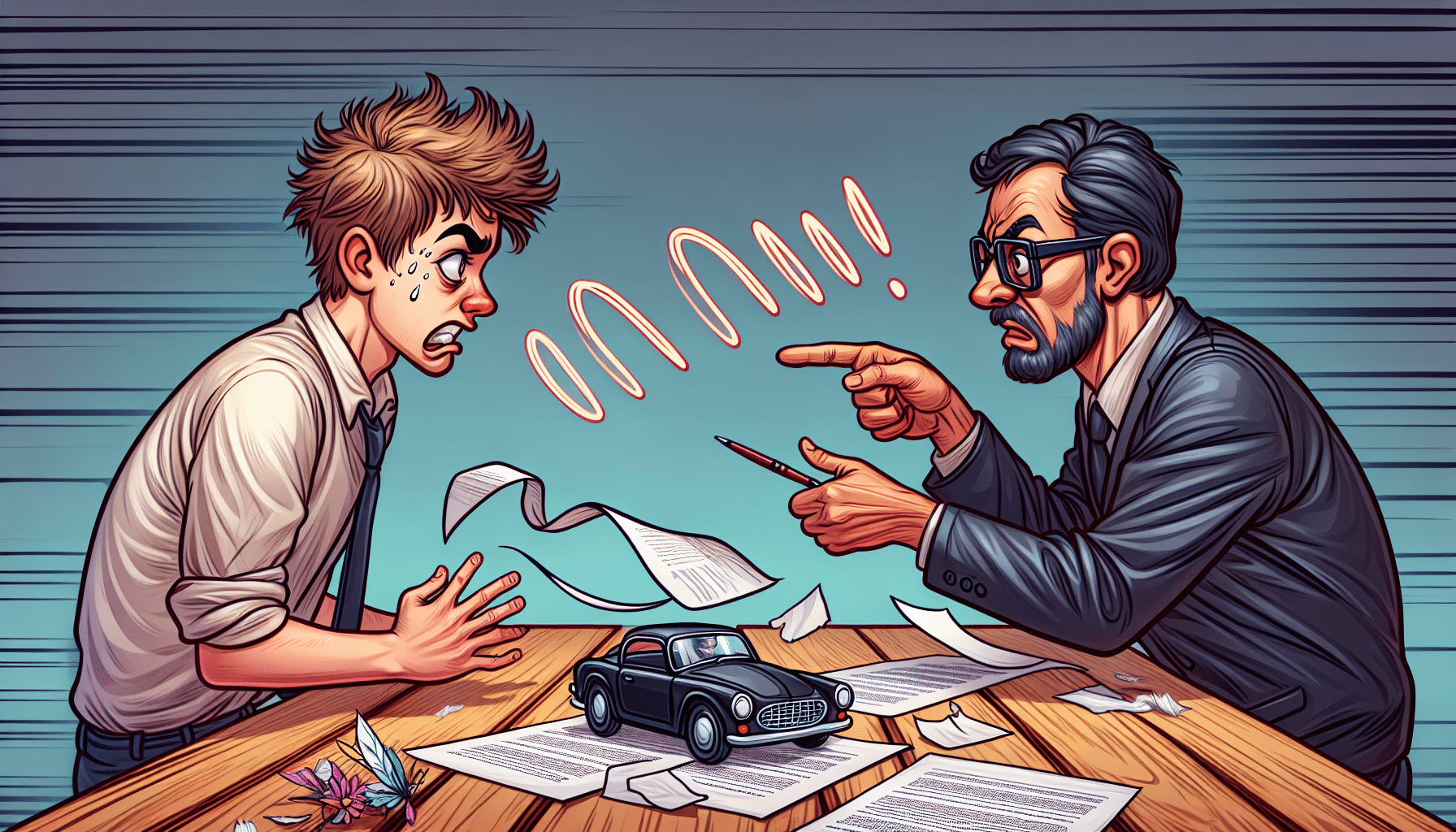
Engaging in plea bargaining resembles finding your way through a labyrinth of legal negotiations, aiming to come out with a less severe charge than the one you are up against. With the guidance of a skilled traffic ticket attorney, you can negotiate terms that may include getting your traffic ticket reduced to a non-moving violation, which can be a significant advantage in avoiding points on your driving record. This process is not just about reducing penalties; it’s about crafting an agreement that reflects the nuances of your specific situation, which might include consolidating multiple violations into a single, more manageable offense.
To finalize a plea bargain, the deal struck between you and the prosecutor must be presented to a judge, who then holds the power to approve or deny the arrangement. It’s a delicate balance of interests, with the potential to transform a ticket that could wreak havoc on your driving privileges into a more palatable outcome. Whether you choose to engage in plea bargaining on your own or with an attorney’s assistance, it’s a path worth considering for those seeking a compromise in the face of a speeding ticket.
Tips for Avoiding Future Speeding Tickets in California
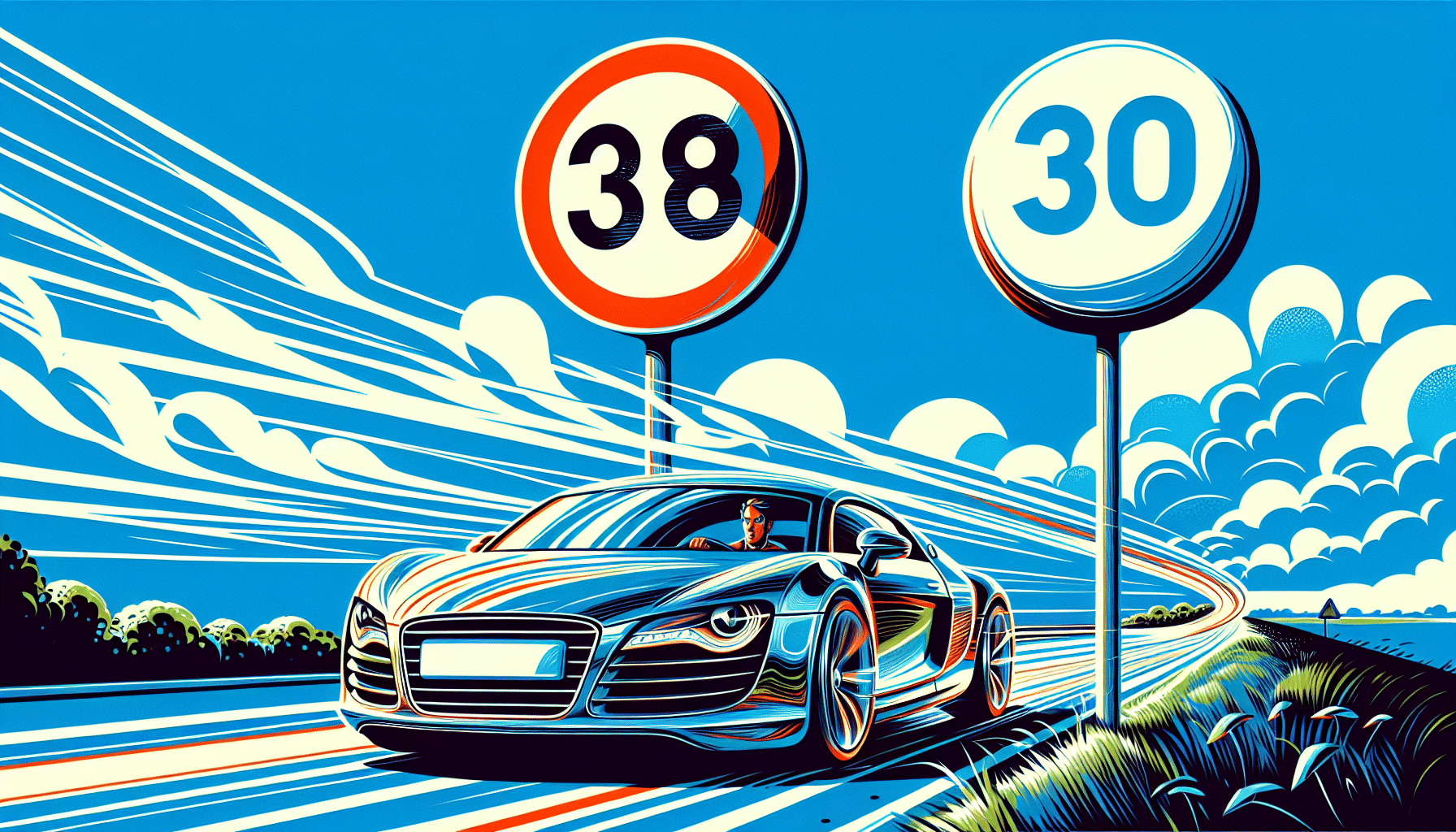
Equipped with the know-how to deal with a speeding ticket, your next move is to shield yourself against future violations. In California, a state known for its strict traffic enforcement, adopting safe driving habits is your first line of defense against the dreaded envelope on your windshield. Here are some tips to help you stay out of trouble:
- Observe speed limits
- Adjust for road conditions
- Implement defensive driving techniques
- Maintain vigilance for changing traffic laws
By following these strategies, you can reduce the risk of unintentional violations that could lead to traffic fines or even more severe traffic offenses.
Technology can also serve a significant function in your endeavor to steer clear of speeding tickets. Modern GPS navigation systems are equipped with features that alert you to the current speed limit and upcoming traffic enforcement areas. By using these tools, you can enhance your awareness and ensure compliance with traffic laws, significantly reducing the likelihood of receiving a speeding ticket.
Remember, the goal is not just to evade tickets but to cultivate a pattern of safe and responsible driving that benefits all road users.
Safe California Driving Habits
Cultivating safe driving habits extends beyond simply adhering to rules; it involves fostering a mindset that values safety and accountability. Here are some tips to help you drive safely:
- Utilize cruise control on highways to maintain a consistent speed and prevent accidental speeding.
- Stick with the flow of traffic and avoid aggressive maneuvers such as frequent lane changes.
- Check your speedometer regularly and remain aware of speed limits to ensure that you’re always within legal limits and less likely to incur points on your driving record.
Starting your journey with plenty of time to spare is another strategy that can prevent the need to speed. Recognizing personal triggers that lead to speeding and practicing calming techniques can also be effective in managing your driving speed. These habits not only keep you safer on the road but also diminish the likelihood of being ticketed for speeding.
Staying Informed about California Traffic Laws
California’s traffic laws aren’t immutable; they progress with time to accommodate new technologies and societal shifts. To avoid falling behind and inadvertently breaking the law, it’s crucial to stay informed about these updates. Ignorance of the law is no excuse, and with the state’s vast array of driving regulations, what you don’t know can indeed hurt you. Fortunately, state databases and online resources make it easier than ever to keep abreast of the latest traffic laws and amendments.
Government websites often offer subscription services for updates or notifications, which can be a convenient way to receive the latest information on traffic regulations. By regularly checking these resources, you can ensure that you remain compliant with the law and reduce the risk of traffic tickets. Staying informed not only helps you avoid fines and points but also reinforces your role as a responsible member of the driving community.
Summary
Navigating the aftermath of a speeding ticket in California can be a challenging journey, but with the right information and approach, it’s possible to mitigate the consequences or even have the ticket dismissed. From understanding the details of your ticket and challenging the evidence to considering alternative resolutions and hiring a legal expert, each step offers a chance to protect your driving record. And with preventative measures like adopting safe driving habits and staying informed about traffic laws, you can reduce the likelihood of future tickets. Remember, knowledge is power, and in the realm of traffic violations, it’s the key to maintaining your freedom on the road.
Frequently Asked Questions
What if I can’t afford a traffic ticket attorney?
If you can’t afford a traffic ticket attorney, consider utilizing free legal resources such as clinics, self-help websites, or contesting the ticket by mail or through a trial by written declaration. This can help you contest the ticket without needing an attorney.
Can I really attend traffic school to dismiss my speeding ticket?
Yes, attending traffic school can be a valid option for many drivers, especially first-time offenders or those with minor violations, as it can prevent points from being added to your record and help keep insurance rates low.
What are the chances of winning a speeding ticket case by contesting it by mail?
Your chances of winning a speeding ticket case by contesting it through mail are statistically higher compared to a court trial. It is advised to consider this option.
How do I stay updated on California traffic laws?
To stay updated on California traffic laws, subscribe to official state government websites or utilize resources from the Department of Motor Vehicles to ensure compliance. Checking these sources regularly will help you stay informed on current laws.
What should I do immediately after receiving a speeding ticket in California?
Review the ticket details carefully and decide if you want to contest it. Start gathering evidence and consider consulting with a traffic ticket attorney for advice on the next steps.




